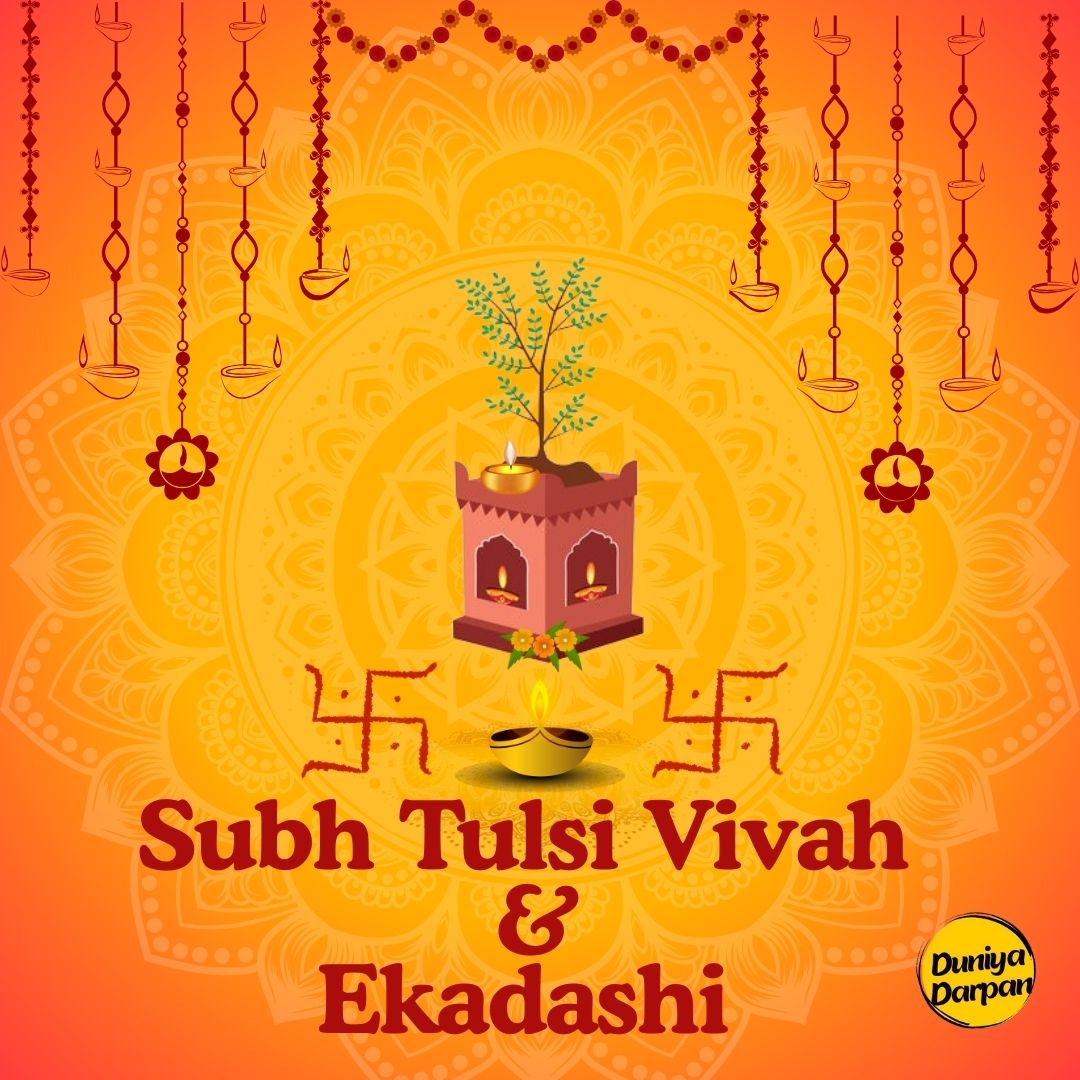Tulsi Vivah and Devuthani Ekadashi 2024: Date, Rituals, and Significance
Tulsi Vivah is a special festival in Hindu culture that celebrates the divine marriage of the Tulsi (holy basil) plant with Lord Vishnu, symbolized as Shaligram. This sacred event is usually performed on the Ekadashi (11th day) of the Shukla Paksha (waxing phase of the moon) in the Kartik month, according to the Hindu calendar. However, in some parts of India, Tulsi Vivah is celebrated on the Dwadashi (12th day) of Shukla Paksha.
Significance of Devuthani Ekadashi
Devuthani Ekadashi, also known as Prabodhini Ekadashi, marks the day when Lord Vishnu awakens from his four-month-long “yoga nidra” (divine sleep). This day is celebrated with great joy as it signals the beginning of the wedding season in Hindu culture. Devotees wake Lord Vishnu with the sound of conch shells, bhajans (devotional songs), and auspicious chants. As part of the celebrations, Tulsi Vivah is performed, symbolizing the sacred union of Tulsi and Shaligram.
Tulsi Vivah 2024 Date and Time
According to the Hindu Panchang (calendar), the Ekadashi tithi in Kartik month begins on the evening of November 11, 2024, at 6:46 PM and will end on November 12, 2024, at 4:04 PM. Since Udayvyapini Ekadashi (the Ekadashi observed at sunrise) falls on November 12, Devuthani Ekadashi will be celebrated on this day.
The auspicious time (muhurat) for performing Tulsi Vivah in 2024 is during Pradosh Kaal (evening) on November 12, from 5:29 PM to 7:53 PM.
Tulsi Vivah Rituals
On Devuthani Ekadashi, devotees conduct the Tulsi Vivah ceremony. The holy plant Tulsi, representing Goddess Vishnupriya, is married to Shaligram, a black stone representing Lord Vishnu.
Here is a simple guide for performing Tulsi Vivah:
- Set up a mandap (decorative canopy) around the Tulsi plant.
- Decorate the Tulsi plant like a bride with red cloth and ornaments.
- Place the Shaligram stone near the Tulsi plant, representing Lord Vishnu.
- Perform the marriage rituals by circling the Tulsi plant and Shaligram together under the mandap, accompanied by chanting and traditional songs.
- Recite Tulsi Namastak and Vishnu Sahasranama (1000 names of Lord Vishnu) as part of the ceremony.
Importance of Tulsi Vivah
Tulsi Vivah is regarded as highly auspicious, symbolizing devotion and purity in Hindu culture. It is believed that performing Tulsi Vivah brings blessings, happiness, and harmony to married life. According to ancient scriptures, this ceremony grants divine blessings and ensures a peaceful marital life.
In essence, Tulsi Vivah and Devuthani Ekadashi mark the start of an auspicious time in the Hindu calendar, celebrating Lord Vishnu’s return and the sacred bond of Tulsi and Shaligram. This festival is not only about devotion but also celebrates the virtues of faith, devotion, and purity.

